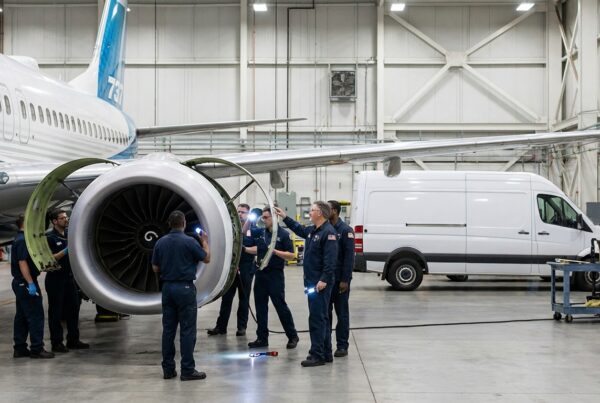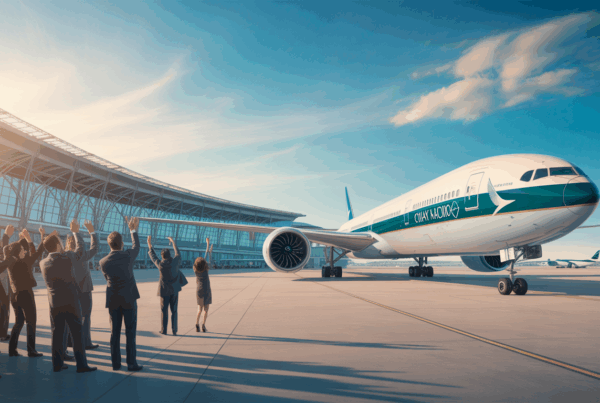Aerospace giant Boeing has announced ambitious forecasts for the growth of its commercial fleet in China by 2043. Indeed, the American company envisages a significant doubling of its aircraft in the Chinese sky, a projection that would considerably revitalize the country's aviation sector.

Boeing recently revealed an ambitious forecast for the aircraft fleet commercial aircraft. According to estimates, the number of commercial aircraft in the country could more than double by 2043. This growth is mainly attributed to the growing demand for air transport, driven by the country's economic expansion and rapid urbanization.
Factors stimulating growth
Several factors contribute to this increase of the commercial fleet in China :
- A steady rise in passenger traffic driven by a growing middle class.
- Massive investment in airport infrastructures.
- Increased international and domestic connections.
Implications for Boeing
Boeing plans to capitalize on this growth by :
- The development of new aircraft models adapted to the needs of the Chinese market.
- Establishing strategic partnerships with airlines local.
- The establishment of maintenance, repair and overhaul (MRO) bases in China.
Economic impact
This expansion will also have economic repercussions:
- Thousands of jobs created in the aeronautics sector.
- Stimulating the local supply chain.
- Strengthening international trade.
Potential challenges
Despite this positive outlook, Boeing will have to overcome several challenges:
- Managing the increase in operating costs.
- Meet stringent safety requirements environmental support.
- Facing increased competition from local manufacturers and international markets.
| Subject | Description |
| Boeing | Aircraft manufacturer plans to double its fleet in China by 2043. |
| Commercial fleet | From 3,600 to over 7,600 aircraft in twenty years. |
| Investments | Airport infrastructure and new technologies. |
| Jobs | Thousands of jobs created in China's aerospace sector. |
Future prospects
In the end, the growth of the commercial fleet in China represents a major opportunity for Boeing and for the global aerospace industry. The success of this project will depend on the ability of Boeing to adapt to the specific needs of the Chinese market while navigating through the various challenges.




